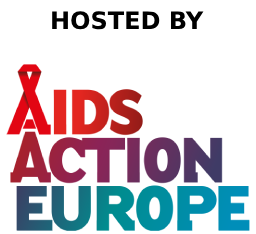Health and sustainability ambitions betrayed as European Commission’s mandate comes to an end: 3 scenarios for action that don’t live up to citizens’ health needs
Brussels, Belgium
The EU Civil Society Forum on HIV, TB and Hepatitis very much welcome the contribution of the European Commission over the years. We understand that the EC reflection paper addresses issues much broader than viral hepatitis, HIV and tuberculosis. However, we believe that the European Commission has reasons and means to be more ambitious since member states have actually committed themselves to eliminate HIV, TB and viral hepatitis as public health threats by 2030 (and not just reducing mortality rate).
You can read the letter sent to the European Commission below.
Brussels (February 20, 2019) – As civil society and community-led organisations working across Europe to address the needs of persons affected by viral hepatitis, HIV and/or tuberculosis, we wish to respond to the approach suggested by the European Commission in its Refection Paper from the perspective of the agreed target to end these epidemics by 2030.
We support the focus on “horizontal enablers” to ensure a sustainable and inclusive future for populations across the EU and beyond. We recognize that the EU has strived towards more cohesive and inclusive societies building on the principles of respect for fundamental rights, democracy and the rule of law. The European project has brought improvements to the wellbeing of its population. Yet, as noted by the Commission, environmental degradation and social disparities are great between and within countries. We agree with the Commission’s recognition that the EU has the capacity to address these gaps and that it does “not have the luxury of time”. The Commission underlines “the important opportunity for the EU to show leadership and blaze the trail for others to follow”.
In that light, the Commission paper is arguably too little, too late, though better than nothing at all. We are concerned at the complacency towards the hepatitis, HIV and tuberculosis epidemic signaled by the reflection paper and the message it sends to the public and policy-makers.
The Commission uses death rates due to these infections as the only indicator of progress towards goal of elimination. Elimination of an epidemic is not realized by only reducing mortality. We also question the reliability of the data regarding viral hepatitis within the time frame presented. The paper only mentions prevention in passing and only for noncommunicable diseases. This is misleading given new infections rates, prevailing inequalities in access to prevention, treatment and care and underfunding of the response.
EU countries have committed themselves to eliminate the hepatitis, HIV and tuberculosis (amongst others) epidemics by 2030. It is feasible. By now we have the knowledge, the tools and the experience to make these epidemics history as significant public health threats and to ensure that no-one is left behind. However, political leadership is lacking or waning. There is insufficient funding for rights-based and evidence-based programmes, there is unequal access to needed health services, persisting stigma and discrimination in health care settings, punitive and restrictive laws that bar the way to health for many sub-populations across the EU (migrants, and undocumented migrants, people in detention/prison, sex workers, gay men and other men who have sex with men, trans persons, ethnic minorities, people using drugs, homeless persons). The EU will not reach the SDGs target and will miss the opportunity to show its added value if it sticks to the current approach.
To be a trailblazer and reap the significant medium to long-term human and financial gains that elimination of these epidemics entails, the EU needs to:
• Increase its focus on social dimensions of sustainable development to ensure a reduction in social inequalities, sustainable and fairer health systems and improving health outcomes for all.
• Adopt an ambitious agenda, implement a strong and budgeted action plan that is aligned with SDGs commitment and targets.
• Develop a plan that is coordinated with member states and monitored via a sound indicator set aligned with the goal of elimination. This would allow a more accurate interpretation of the desired direction for EU action. The EC could consider data collected by ECDC to provide a proper assessment of performance (e.g. infection rates, treatment coverage, prevention budget, regulatory frameworks). It could integrate ECDC and WHO reporting.
• Improve coherence between EU policies and actions.
• Collaborate with third countries to catch up.
EU Civil Society Forum on HIV/AIDS, tuberculosis and viral hepatitis

